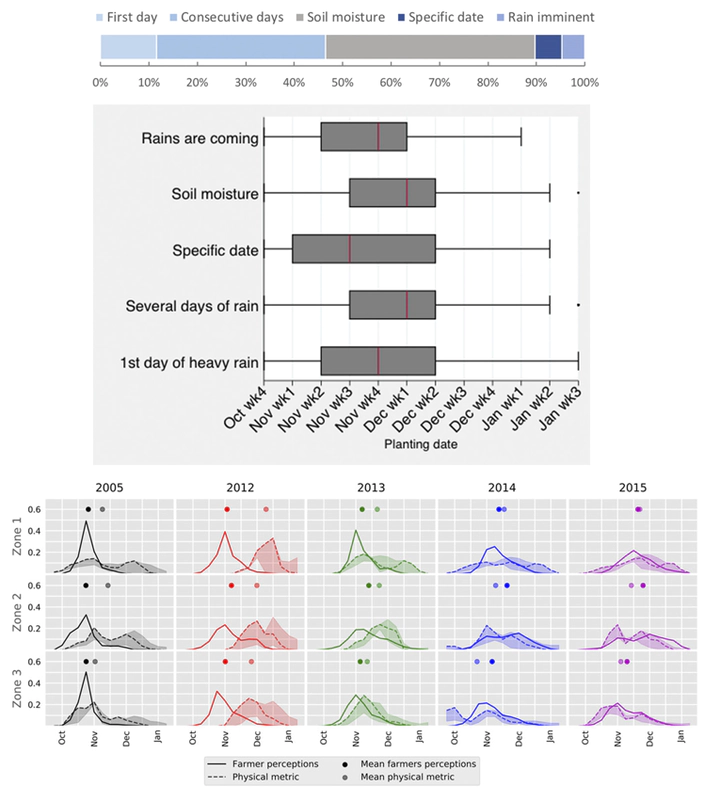
Abstract
Given the varying manifestations of climate change over time and the influence of climate perceptions on adaptation, it is important to understand whether farmer perceptions match patterns of environmental change from observational data. We use a combination of social and environmental data to understand farmer perceptions related to rainy season onset. Household surveys were conducted with 1171 farmers across Zambia at the end of the 2015/16 growing season eliciting their perceptions of historic changes in rainy season onset and their heuristics about when rain onset occurs. We compare farmers’ perceptions with satellite-gauge-derived rainfall data from the Climate Hazards Group Infrared Precipitation with Station dataset and hyper-resolution soil moisture estimates from the HydroBlocks land surface model. We find evidence of a cognitive bias, where farmers perceive the rains to be arriving later, although the physical data do not wholly support this. We also find that farmers’ heuristics about rainy season onset influence maize planting dates, a key determinant of maize yield and food security in sub-Saharan Africa. Our findings suggest that policy makers should focus more on current climate variability than future climate change.